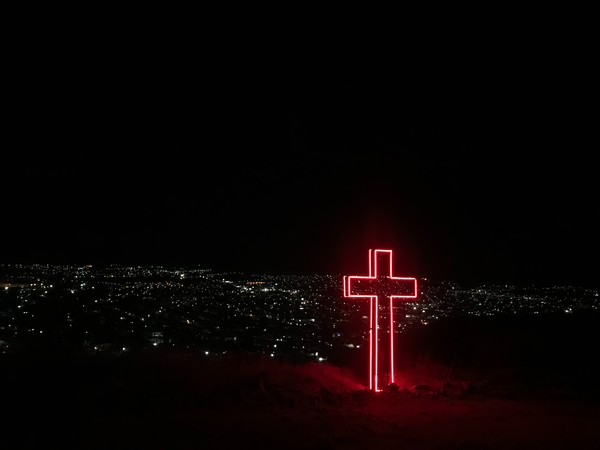
By Jenny Lee WIRED Korea
As the novel strain of coronavirus from China continues to grip the world, the spread of infections has slowed in Korea, one of the countries hardest hit by the highly contagious and deadly pandemic.
Recent figures show a steep decline in the number of new COVID-19 cases, which on Wednesday was below 100 for the fourth consecutive day before it jumped to 152 on Thursday. The number of patients who have recovered from the virus has also been surpassing the number of new infections.
Nevertheless, Korea, which has thus far reported more than 8,600 cases and 97 deaths, remains on guard and is ramping up precautionary measures as clusters of infections continue to crop up across the Seoul metropolitan area.
Authorities have linked new virus clusters to churches, the latest being the River of Grace Community Church in Seongnam, nearly half of whose 135 worshippers tested positive after attending a Sunday service earlier this month. The protestant church has reportedly used a contaminated bottle to spray saltwater into the mouths of the congregants.
Religion at Center of Virus Outbreak
Much outrage has been vented by the Korean public over faith communities’ continued operation during the outbreak, after a fringe Christian sect, which many perceive as a cult, was identified as having been at the heart of a rapid surge in coronavirus infections. At least 5,000 cases were traced to the Shincheonji Church of Jesus’ Daegu city branch, which has prompted Church founder Lee Man-hee to get down on his knees and make a public apology.
Established in 1984, the church with 215,000 adherents in South Korea and overseas reveres the 88-year-old leader as “the promised pastor” mentioned in the Bible who will take 144,000 people with him to heaven.
“Prayer sessions are held in tightly packed halls, with more than 500 people sitting on the floor in close proximity and shouting Amen in unison,” said Kim Dong-hee, 28, a former Shincheonji member who had served in the Cheonan branch for up to seven years. “It is a perfect place for the virus to spread.”
A petition on the presidential Blue House's website calling for the religious sect to be forcibly disbanded has garnered more than 1.2 million signatures, and the Seoul metropolitan government has called on prosecutors to launch an investigation on Lee and 12 other Shincheonji officials who are accused of causing harm and violating the Infectious Disease Control and Prevention Act.
Tark Ji-il, a professor at Busan Presbyterian University, said the sect’s mishandling of the outbreak, such as withholding names of its members, has hampered the country’s efforts to stem the pandemic and therefore deserves criticism. Responsibility also lies with religious people as citizens of this country to ensure its safety, he said.
“Shincheonji’s secretive nature and unorthodox teachings have delayed the initial response to contain the virus,” said Tark, who has been poring over the country’s religious movements.
Tark said that not only does it compel its followers to attend every service in any circumstance, Shincheonji also encourages them to engage in “deceptive proselytizing,” or accosting potential converts without disclosing their denomination. Their number one priority, he said, is keeping their tracks covered, and it could complicate the mitigation efforts in times of an outbreak.
Government’s Measures Meet Opposition
Lest it be embroiled in unnecessary controversies from religious groups, the Korean government has refrained itself from issuing a blanket ban on large-scale events or rallies, the right given to the health and welfare minister and local government heads by the Infectious Disease Control and Prevention Act.
But local authorities have repeatedly urged them to refrain from holding mass gatherings and practice safe hygiene. Gyeonggi Province even went so far as to issue an emergency administrative order for about 140 churches on Tuesday, imposing strict conditions on their offline worship services.
In line with the government directives, the Catholic Church has suspended all Masses across the country, and Buddhists have put on hold public services and even deferred Buddha's birthday celebrations, which were scheduled to be held in April. Shincheonji has also shuttered its doors.
But responses vary among Protestant churches, which lack a centralized structure where decisions are made and directions come from. While the large majority has moved their services online, some remain intransigent and continue to hold worship services. They say the directives undermine religious freedom guaranteed by the Constitution.
In a statement dated March 17, the Communion of Churches in Korea expressed concern and regret that “the government has infringed upon the church’s right to worship” and urged all public officials to “fully recognize the seriousness of religious freedom specified in the Constitution.”
The communion nonetheless acknowledged that the government’s calls to cancel large gatherings and close religious facilities were an inevitable measure to mitigate the spread of the virus and that churches can find alternative ways of delivering their weekly services.
Kim Sang-kyum, a law professor at Dongguk University, said the government’s request does not constitute a violation of religious freedom but rather “a restriction for the greater public interest.”
“We are a community, and we should always be mindful that we need to protect the rights of others,” Kim said. “Individual rights are not absolute and may be subject to limitation if they infringe on other people’s rights.”
저작권자 © WIRED Korea 무단전재 및 재배포 금지
이 기사를 공유합니다


 뉴스레터 신청
뉴스레터 신청